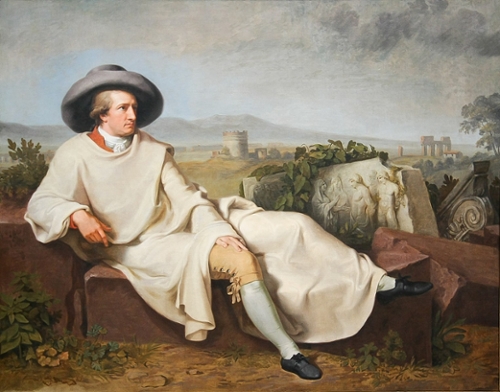"We are all pilgrims who seek Italy”– Johann Wolfgang von Goethe,
|
|
A Definition of Italian Experience and Research
By Federico Pacchioni and Domenico Napoletani
For centuries Italy has been a seat of cross-cultural encounters and exchanges, a portal stretching out into the Mediterranean Sea marked by the scars of social conflicts and by the beauty and growth that are part of human relationships. Indeed, the complex layering of diverse cultures and worldviews caused by geographical, political, and religious forces since ancient times underpins a sense of continuity with a deep human past.
Due to the evolution of early-modern Western culture, Italy has become a symbol of such a phenomenon, a site where the question of cultural identity is powerfully presented to all those who wish to explore it, especially foreigners. A critical alignment with the Italian experience clearly affords a special understanding of delicate and relevant issues for our globalized modernity.
Given Italy’s real and symbolic historical wealth and cultural distinctiveness, the country has been and continues to be a fertile ground of innovation for many sciences and industries, and an inspirational source for artistic, cultural, and civic movements. This effect, which could be termed the Italian Experience, carries a significant educational potential: it is fluid and universal and, as such, it welcomes us into a cosmopolitan community where it is possible to rediscover oneself.
Italy speaks to two inextricable needs of today’s humanity: a) for global identity and social and intellectual development and, at the same time, b) for the acknowledgment and maturation of local and subjective identities. The affirmation of local identities through what makes them unique brings into focus the more universal aspects of humanity and nature. The whole Italian humanistic tradition offers seminal examples of universality and interdisciplinarity.
Italy, with its multilayered human and natural landscape, embodies powerful aesthetic experiences that are nurtured by memory and by a vivid sense of place and community, offering manifold beginnings to individual paths to knowledge. A focus on the sensorial, aesthetic experience transforms both learning and teaching; it allows for an authentic development of the student’s ability to connect with the object of their discipline and to become aware of the interconnectedness of multiple disciplines. Guided by the unifying power of their experience, students and faculty can embark on their own transformative path of knowledge and continue it in an open-ended pursuit of truth and human growth.
